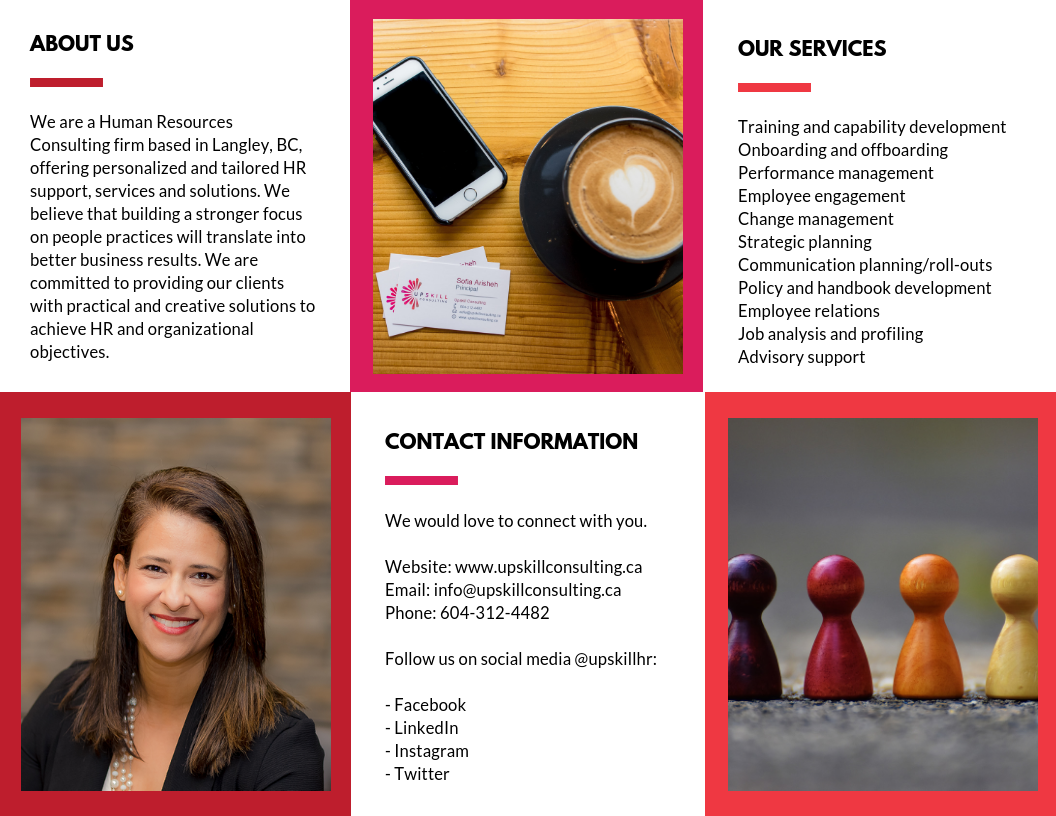“Train people well enough so they can leave. Treat people well enough so they don’t want to.”
Sir Richard Branson
Most recently, I facilitated a training workshop for a professional services firm. The topic focused on leadership development, specifically living and breathing the firms’ core values and executing strong leadership skills in their day-to-day actions. Participants were asked to step out of their comfort zone and each and every one of them chose to show up, work together as a unified team and commit to leading with intent and purpose moving forward. The conversations were real, authentic and raw. When discussing what we could do more of or better moving forward … one area of focus was mentioned time and time again … focusing on our people. By the end of the workshop, the team mentioned the following as some of their key commitments moving forward:
- Mentor, guide and coach others through complex issues
- Establish better and deeper connections to others
- Lead with a genuine care for others
- Share information, issues and knowledge freely to enhance understanding and performance
- Empower others to strive for excellence
- Champion and promote team collaboration and involvement
This workshop and many others that I have facilitated for clients have confirmed the following:
Leaders must coach and mentor others to drive company success. It isn’t an option!
As Simon Sinek has said “A leader’s job is not to do the work for others, it’s to help others figure out how to do it themselves, to get things done, and to succeed beyond what they thought possible”.
Many of my clients are in the professional services realm and in this business model, we often focus on chargeable hours and the non-billable or admin activities begin to fall by the wayside. This often comes at the expense of our people. People then begin to feel undervalued and underappreciated, resulting in them choosing to leave. This becomes a continuous, vicious cycle.
We know that focusing on our people and engaging in coaching and mentoring is a positive activity that needs to be woven into the fabric of our firms; however, as the client work takes precedence, coaching and mentoring tends to become more of a well-intended action that is often forgotten or poorly executed.
To gain more insight into the importance of coaching in the workplace from the perspective of an ICF certified coach, I recently interviewed Deanna Isfeld, a life and career coach from IDI (https://www.deannaisfeld.com/). Here are snippets from our interview.
What’s the difference between mentoring and coaching?
Mentoring is someone who provides expertise and advice based on his or her own experiences and knowledge. Coaching differs in that it provides a framework that allows the client to access their own inner wisdom and authentic way of being; it honours the client as the expert in his or her own life. Coaching is a holistic approach in that actions and steps are informed by a connection to an individuals’ beliefs and values. Coaching frameworks provide direction, motivation and personal accountability. Both coaches and mentors serve a valuable purpose and many individuals committed to their success will work with either/both a coach and a mentor.
What’s the value of coaching in the workplace?
I’ve worked with solopreneurs, managers and independent contributors; consistently, the value of coaching in the workplace allows individuals, at all levels, to bring more of themselves to work and life. This can be evaluated using metrics that are both qualifying and quantifying. Employees report feeling more valued by their employers when services like coaching are provided to enhance their overall wellness and human development, which in turn leads to improved productivity, engagement, retention and the overall well-being of human capital. Partnering with a coach provides an opportunity to recognize and move beyond beliefs that might be holding you back from reaching your potential, learn how to leverage your strengths, and solve problems creatively. You can most certainly do this without coaching, but it’s been established time and again, that you will get there more effectively and efficiently working with a coach.
What are the benefits of coaching for an organization?
The benefits of implementing a coach or a coaching culture, depends on what strategic organizational goals the company wants to achieve. How do they want to measure the benefits of coaching or what are they already measuring that is important to them? Assessing performance, engagement and human capital by measuring productivity, collaboration, connection between the values of employees/leaders and the organizations and where they intersect, employee retention and compensation, employee satisfaction and connection to purpose, less time away due to stress and illness, development and retention of high potential employees are some of the areas that can be influenced by coaching or building a stronger and established coaching culture.
How can leaders coach their teams more effectively day-to-day?
By looking for and creating opportunities for coaching and supporting employees to be their best; ask questions, stay curious and encourage your team to do the same. Focus on creating conversations to learn from what has worked well and what has not. Leaders can also commit to developing their own emotional intelligence and self-awareness and remaining open to receiving feedback. The higher the position you hold in the organization, often the less available you become to receiving feedback. Implement coaching practices, principles and resources to empower individuals to creatively expand options, encourage diverse thinking and collaborative approaches, ideas and imagination. Create psychologically “safe containers” for communication, be clear with expectations, roles and responsibilities, recognize diversity as a strength for the team and celebrate accomplishments. Remember we are all human beings.
Some sound words and tips from Deanna! What I’ve learned in both my role as an employee, a Human Resources Manager and a Consultant partnering with various clients in a wide spectrum of industries, is that in order to commit to our people, we need to invest the time in coaching and mentoring in the workplace. It’s about focusing on the present and the future, asking the right questions to guide and empower employees and holding all parties accountable for their goals and actions. Coaching and mentoring involve time and effort but its overall impact on workplace culture, employee engagement and overall success of an organization is profound. Let’s make coaching and mentoring, formal or informal, a part of our daily practice.
“Be the leader you wish you had”
Simon Sinek
To learn more about our HR services, visit https://upskillconsulting.ca/services/

- Trust First, Feedback Second: Why Connection Comes Before Correction - June 1, 2025
- The Not-So-Fluffy Truth About Connection in Leadership - May 2, 2025
- Small Changes, Big Impact: The Case for Micro Shifts in Leadership - April 7, 2025

